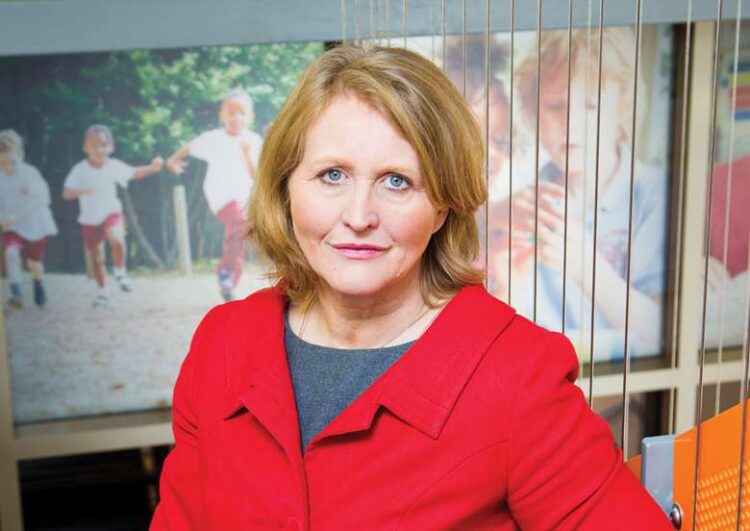By Victoria Mckeown-
Teenagers taken into care in England to safeguard them from exploitation are being put at more serious risk in the care system itself, and often end up drug dealing and in gangs, a shocking report warns.
The care system which is supposed to protect unfortunate children, instead lets them down and leaves them vulnerable to exploitation by the criminal world, destroying their future, and leaving them susceptible to a future in jail in too many cases, the disturbing finding of the report shows.
It reveals an ongoing epidemic of drug running, which often leads to children being lost to gangs, sexually exploited, caught up in the criminal justice system in their teens, in care for their own protection and leaving school without qualifications or many options.
Such tear away children ‘are over-represented in our adult prisons, more likely to be homeless and more likely to suffer mental health problems. As children they are more likely to be Black and more likely to be poor.
These children were vulnerable before the pandemic but are now at heightened risk running, grooming and serious youth violence in England. Harmful criminal exploitation is now an ever-present reality of some childhoods.
‘There are many thousands of others growing up surrounded by addiction issues,
domestic violence, serious parental mental ill health, or poverty.
”Frequently they go unsupported and invisible to the agencies who should be able to protect them. They are the children most likely to fall through gaps in the education or care systems, and who can end up exploited by the ruthless organized criminals or abusers who have
such a talent for spotting them.
The Commission on Young Lives report said children were moved from their local areas to live in unregulated accommodation targeted by criminals.
Originally launched in September 2021, the Commission said it will propose a new settlement to prevent marginalized children and young people from falling into violence, exploitation and the criminal justice system.
It criticized the current system as “unfit for purpose” , adding that it was letting down the rising number of over 16s in care.
Ministers said they were “urgently reforming the system”.
In London, where there is a particular shortage of care places for teenagers, thousands of children in the past year have been placed outside their local borough, according to data from 22 out of 32 London boroughs gathered via freedom of information (FoI) requests.
At least 1,516 looked-after children from London spent some or all of their time in placements outside the capital in 2020-21, the data shows.
In addition, almost 2,000 looked-after children in London were living in semi-independent accommodation, which is often unregulated, unsuitable and, according to the commission, “a magnet for criminal and sexual exploiters”
Bleak
The review – chaired by former children’s commissioner for England Anne Longfield – described the experience of exploited teenagers as “bleak” and the protections in place to support them as “infuriatingly inadequate”.
It paints a picture of a shortage of suitable residential places, a failure to identify those at risk of exploitation, and cuts to funding for early intervention programmes.
It calls for a package of government measures aimed at teenagers at risk, including a ministerial taskforce and a ban on the use of unregulated accommodation for under-18s in care.
According to the report, the care population is getting older and 16 and 17-year-olds with acute needs now make up 23% of children in care.
The system, initially designed to support young children, is now struggling to adapt to the needs of these older children, it says.
Some vulnerable teenagers are moved away from the area they live in and to places with high levels of crime, according to the report, while criminal gangs have even been known to be tipped off from within local authorities when vulnerable teenagers are moved into unregulated accommodation.
Ms Longfield said the social care system was frequently putting young people “in even greater danger”.
“Often, we may as well be handing over children directly to ruthless gangs and criminals,” she added.
Ms Longfield said resetting children’s social care would require “determined action and some funding”.
She added: “We know the number of vulnerable teenagers at risk of exploitation entering the care system is becoming older, with more complex and expensive needs, and growing. We also know this is putting an enormous strain on the whole children’s social care system.”
In March 2021, there were 80,850 children in care in England, a 1% rise on the year before.
Black children are more likely to be in care, the report noted, adding that it was particularly concerned by “racial biases in the system which put black boys at risk of harm”.
Most children who end up in care have disturbed background, in many cases their parents are heavily on drugs, alcohol, or have abandoned them altogether. In other cases, domestic violence is too rife in their homes.
The Department for Education said it was “urgently reforming the system to address growing pressures”.
It highlighted the introduction of national standards and new oversight from watchdog Ofsted for supported accommodation, as well as investment of £259m to increase places in the homes.
The government is also providing £45m for programmes to help vulnerable children at risk of being targeted by gangs.
In a statement, a DfE spokesperson said: “We recognize many vulnerable young people face new and growing risks, which is why we are providing targeted support… to keep these young people engaged in their education and to prevent them becoming involved in criminal activity.”

